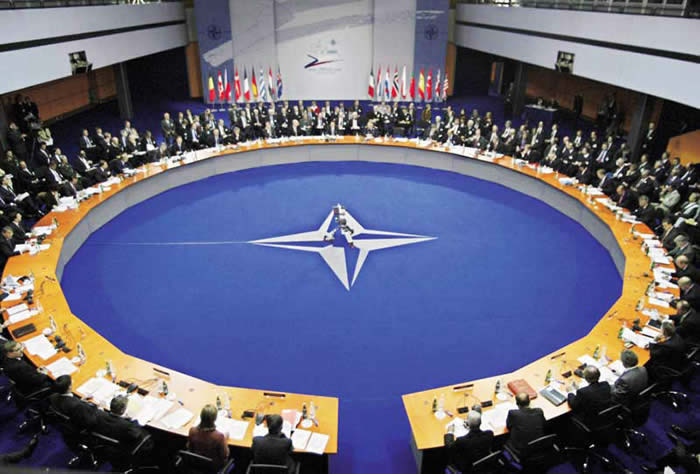
At NATO’s 60th anniversary Summit in April the tasking will be given to draft a new strategic concept, which will undoubtedly provoke an intense and none too easy debate about the future of the Alliance. When undertaking this exercise, it is important to realize that the context in which NATO operates has changed fundamentally. Accordingly, rather than just improving NATO-EU relations and streamlining the NATO apparatus, more fundamental changes in the organization of transatlantic relations overall are required.
De facto, the Alliance is evolving into a “2-pillar-NATO" in which, next to the individual governments, the EU and the US are the primary level of decision-making. They can wage a holistic foreign policy, from aid and trade, democracy and human rights promotion, to diplomacy and defense. And the EU, unlike NATO, is much more than a mere intergovernmental organization.
Importantly, at the same time a strategic divergence has occurred between the EU and the US, best expressed in their respective strategies. Reading the US National Security Strategy, the conclusion is that the world is a very dangerous place; reading the European Security Strategy, the conclusion is that the world is a very complex place. This divergence will not disappear with another occupant in the White House, because it is a result not of the Americans, but of the Europeans having changed – the EU has become increasingly aware of its own interests and priorities.
This double-sided evolution should be reflected in the way transatlantic relations are organized:
(1) In a multi-polar world, the EU must have the necessary margin of manuever to interact flexibly with all global actors. Nevertheless, the US will remain the closest to Europe. The EU-US partnership therefore must be deepened, more comprehensive, and more operational. This political partnership must be much more than “summitry." Perhaps permanent bodies are in order; in any case Europeans must speak to the US as EU. Within such a partnership, NATO becomes more of a technical, executive body: if the EU and the US decide to act together militarily, they will use NATO.
(2) The primary level of decision-making, including on security and defense, are the two “pillars”, the EU and the US. Increasingly, it is in the EU that Europeans take the primary political decision on whether to act in a given crisis. If military action is decided upon, the secondary decision is to choose the operational framework: the European Security and Defense Policy (ESDP), NATO, the UN, or the OSCE. That choice will always be an ad hoc decision, in function of which partners want to go along and which organization is best suitable for the crisis at hand – reality is too complex for a fixed division of labor to work. If before a European pillar within NATO was talked about, now the pillars are the dominant players. Where the European Security Strategy and the US National Security Strategy coincide, will determine NATO’s new strategic concept – not vice versa.
(3) At the EU level therefore, in the context of ESDP, must European military capabilities be further developed, through various forms of cooperation and pooling. This guarantees the autonomy of ESDP, while even fully integrated European capabilities can be deployed for NATO operations if that framework is decided upon for a specific mission. With regard to the EU’s civilian assets, an EU-NATO cooperation agreement can be concluded, providing for full involvement of the EU in planning for scenarios in which NATO would lead a military operation and the EU would lead a concurrent civilian deployment.
The ball is now in the European camp – is the EU ready to catch it? A de facto evolution towards a “two-pillar-NATO” is taking place, but for the model to work effectively and a true partnership of equals to emerge, Europe must speak, and act, as one.
Prof. Dr. Sven Biscop, a member of the Atlantic Council’s Strategic Advisors Group, is director of the Security & Global Governance Program at Egmont – The Royal Institute for International Relations (Brussels) and Visiting Professor for European Security at the College of Europe (Bruges) and at Ghent University.
Image: NATO-meeting.jpg
